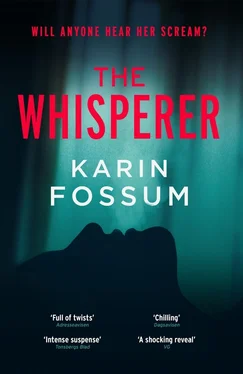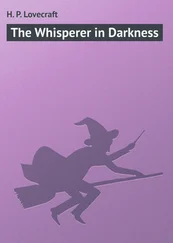‘Suit? Surely he doesn’t wear that all the time?’
‘Yes,’ Ragna said. ‘He really does. He’s been here before, and he’ll come back again, in a black suit. Believe me. I told him to keep the receipt.’
For the rest of her shift, she sat there, looking out for him. Her eyes were constantly drawn to the entrance, which opened and closed all the time. But he did not come back. She was afraid that he had not understood his oversight, that he had looked in the car, if he had come in a car. Or that he had phoned the bus company, if he had taken the bus. But if he needed a watch, he would come back again for a new one. Only Europris sold them that cheap. Before walking to the bus after her shift, she checked to make sure that the watch was still lying on the shelf.
No threatening letters in the mailbox. No card from Rikard Josef. Still dark in Irfan’s shop. The mean, succinct sign was still there on the door. But the Christmas card would come. It was advent, and no doubt busy in the hotel, she would give him time. She could just imagine him hurrying along carpeted corridors in expensive black shoes, dealing with the constant questions from the guests and staff. She took the paper and carried on up to the house. Then it struck her. She had not walked forty-eight steps as she usually did, but had done it in thirty something.
She looked around, bewildered, and stared down at her feet to see if they looked different. How was it possible? She looked back at the mailbox, which seemed to be closer than usual. She saw her tracks in the snow, a narrow trampled path. The problem, her uncertainty, could of course be resolved. She could go back down to the road and count again. But she dismissed the idea. I’ve just taken slightly bigger steps than normal, she thought, because I’m tired. How silly! Resolute, she turned and went inside, and banged the door shut. Thirty-something steps, well, well. Tomorrow it might be fifty-something, and so what? She was tired and could not walk any other way, sometimes she was slow, other times fast, and that affected her stride. Again, she cursed Irfan Baris. She often could not face going to the supermarket in town after work, so she had to use what there was in the fridge. She found some out-of-date eggs, but eggs lasted for months. She whipped them up and poured them into the frying pan, added some bits of hard cheese, salt and pepper. She had the omelette with a piece of bread and an espresso, to keep her awake. She must not fall asleep in the chair, the nights were bad enough already.
There was no one by the lamp post staring up at the house. As there was nothing interesting on television, she read the newspaper, but only the headlines. She sat in the armchair staring at the dark windows, trying to order the day’s events, thoughts, conversations and observations. To see if she had missed any signs. The Agent stepped into the spotlight, he had to be important in some way or other. He must have discovered by now that the Casio watch was missing. He was annoyed. He had gone through the day in his head, had looked in all his pockets and the car. He had planned the following day so he could pop in to the shop and ask if they still had it. And she would give him a friendly smile and hand him the white box from the shelf below the till, and make him happy. It would be a perfect moment. And she did not have many of them.
Then she fell asleep in the chair, despite her efforts to stay awake, with her chin on her chest and her pale, freckled hands on the armrests, still wearing her green overall. A lonely, conscientious soul with hopelessly dry, undernourished hair. Not even a sparrow would live in such a terrible nest, she often thought, whenever she caught sight of herself in a mirror. And time slipped by, and no one woke her. No one rang on the bell or knocked on the door, as she no longer had a doorbell, only a terrifying Rottweiler, ready to attack.
When she woke up, her mouth was dry, and she was so angry she could have wept. She discovered it was late in the evening, about the time she normally went to bed. She was stiff after spending a couple of hours in a crooked, uncomfortable position on the chair, and her neck ached. She turned on more lights, struggled to clear her head and looked to see if there was anything worth watching on the television. She was hungry again. She went into the bathroom and started to run a bath. The water gushed out of the taps. She got undressed. Got it into her head that she had forgotten to lock the front door, that anyone could walk straight in, open the bathroom door and find her here, naked, and utterly devoid of beauty. She shrugged and was blasé again — of course she had locked the door. The small movement, turning the key to the right every time she crossed the threshold, was automatic. She filled the bath nearly to the brim, and sank into the hot water, letting her hands float up. They were small, like those of a child. It was a very quiet night on Kirkelina. All she could hear was a drip from the tap. She closed her eyes and breathed deeply. It was as if she was weightless. If only she had been a fish or a sea anemone, or a jellyfish with long tentacles, how delightful life would have been. She floated around with the fish for a long time. But then suddenly came to when something broke the silence.
She heard several hard blows echo through the house, as though someone was trying to get in. She flailed around in the slippery tub, managed to sit up, but then slid down again. As she panicked she swallowed the soapy water and it went down the wrong way, and she remembered that she had put two handfuls of bath salts in when she was running the water, and that American teenagers had been using it for years to get high, and now it would enter her blood system and go to her head, and terrible things would happen. She would lose her grip on reality and maybe hallucinate; she might even start to gnaw at her own flesh, she had heard stories about that. She held on to the edge of the bath and listened. She heard knocking and hammering somewhere in the house, at a door, not a window. Someone was using a lot of force, a person with a special strength. This was no knuckle rapping on the window. She had lived in the house all her life, and she had never heard anything like it, not even on those rare occasions when her father was well and decided to sort things out. To hang up pictures, do some repairs, move the furniture, as instructed by her mother. The warm bathwater was now on its way down to her bronchial tubes and left a disgusting taste in her mouth. She wanted to cough it up, but it was too far down. She heard the knocking again, with the same force. She stared at the bathroom door, petrified — she had not turned the key, had never done that, not even when she was a pregnant teenager. Her mother and father had never invaded private moments, like when she sat on the edge of the bath, naked, with her growing belly. She coughed violently and spat the vile taste out of her mouth, sitting bent forward in the warm water like an old man about to die.
There was more knocking, but it was less intense this time. When it finally stopped, she gave herself a stern talking-to, with the voice of reason. The person knocking on the door was presumably some sort of salesperson who had tried without success to ring the doorbell. It might be the fishmonger, who came by every fourth week and parked his white van outside. Maybe he had come to sell her some Greenland prawns, or halibut or cod or fishcakes. But they always came in such big bags, and she lived on her own. She had once tried to explain to the fishmonger that she did not have a freezer, just a small icebox at the top of the fridge, with enough room for a loaf of bread. And she would never be able to eat five kilos of prawns, even if she took a year, but it would be nice if he could do what van Gogh once did when he needed money for absinthe. He had painted some tempting pink prawns and had a potential buyer who desperately wanted the delightful crustaceans, but he was not rich and could not pay. So van Gogh said he could sell him half the picture, and he cut two of the prawns out of the canvas with a sharp knife; he got his coins and absinthe, and the buyer got as many prawns as he could afford. Might that be a solution? But the fishmonger had never heard of van Gogh’s prawns, and he was not willing to open a packet and sell her half a kilo. But he had given her a smile before he had returned crestfallen to his van and driven on to Olaf’s house.
Читать дальше












